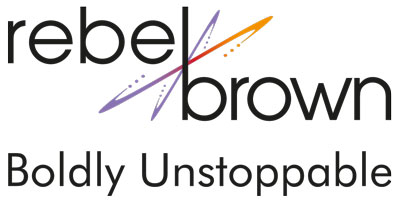We all need to know the truth about human memory. Our memories aren’t trustworthy.
Yes, we have vivid memories of experiences. That does not mean they are true.
Did you know that our unconscious mind is filling in gaps in our experiences and memories, all the time? So that vivid experience you recall may or may not be what actually happened? In fact, what you remember of that experience is probably very different from what actually happened.
We fill in the gaps in our vision, hearing, memories and perceptions, in every moment of every day.
Which is why our memories aren’t trustworthy, or accurate for that matter. See why I said you needed to learn about memory????
The Gaps in Human Memory
We all have mental gaps, those times and places where we don’t have all of the data we need. So our unconscious mind fills in the gap based on our past and our expectations. For example:
- Our eyes have blind spots, thanks to the layout of the rods and cones, as you’ll remember from grade school. We literally only “see” part of the image in our visual space. Our unconscious mind fills in the gaps in the image based on what it expects us to see. If we’re looking out across the countryside, our unconscious mind fills in a peaceful countryside. But what if there’s an unexpected lion lurking in one of our visual gaps? We’ll most likely miss it… until it moves into our actual visual input field.
- We fill in sounds all the time too. For example, someone is talking to you and a noisy bus goes by. You miss a couple of words thanks to the noise, but your unconscious mind fills in those words based on what you expect your partner to be saying. This is a common foundation for misunderstandings… and how we literally put words in other peoples’ mouths.
- We do the same thing with our memories and experiences. Numerous studies have shown that human memory focuses on the gist of the experience. We can’t possibly process all of the data. So our unconscious mind decides what is going on (based on expectations), generalizes or categorizes the experience (based on experience) and then fills in the details…which we then believe to be true as part of our human memory. One really interesting study has to do with eyewitnesses and line ups*. Police know that in 20-25% of the cases, eyewitnesses will finger a person the police know is not a suspect. More than half the time if the true criminal is not in a lineup – the witness will finger someone who best matches their memory of the criminal. That’s because we humans don’t hold a detailed experience of the memory, we hold the gist of the experience, then fill in the rest when we need it. Now that explains our various and diverse memories of the same experience!
Human Memory Gaps in Action
Do you want to experience a human memory gap in action? Here’s how….
Read the following list of words, paying careful attention to each word. Study the list for a good 30 seconds.
Candy, sour, sugar, bitter, good, taste, tooth, nice, honey, soda, chocolate, heart, cake, eat, and pie.
Now, scroll down so you can’t see the list.
Without peeking, identify which of these words are in the list you just studied.
taste point sweet
- Most people will recall that point was not on the list.
- Most will also recall that taste was on the list.
- But what about sweet?
If you recalled seeing sweet in that list, you have an example of human memory recalling the gist of the list, but not the accurate list. You filled in sweet as part of the gist**
The Bottom Line About Human Memory
We’ve all been taught to rely on our memories for everything from baseball games to business agreements.
But what if those memories are false? How reliable are our memories of the past? How can we base our decisions today on memories that may be as filled with holes as swiss cheese?
Let me know how you did with the exercise if you have a moment, please!
________
* Gary Wells, What Do We Know About Eyewitness Identification, Journal of American Psychology, 2003
** Daniel L. Schacter, Searching for Memory







3 Comments
grooming sessions
January 19, 2015 - 9:27 pmTremendous issues here. I’m very glad to look your article.
Thanks a lot and I’m having a look forward to contact you.
Will you please drop me a mail?
rebel brown
February 5, 2015 - 7:29 amThanks for stopping by. If you’d like to connect you can ping me through my contact page and I’ll respond!
Have an Unstoppable day!
Our Best HR & Tech Posts Selection – December 2014 | Glocal Thinking ENG
April 14, 2015 - 1:59 am[…] Why You Can’t Trust Your Memory, by Rebel Brown in her website […]